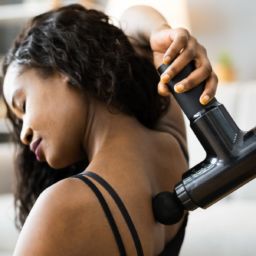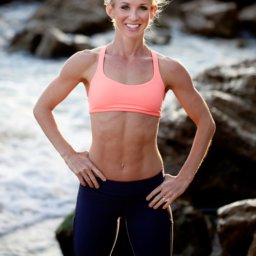“Sleep is the golden chain that ties health and our bodies together.” – Thomas Dekker
There’s a connection between sleep and hunger. Getting better quality sleep can help with appetite, cravings, and ultimately, weight loss.
Have you ever felt more hungry or had cravings for certain foods after a poor night’s sleep? It’s not just your imagination—there’s a link between sleep and hunger.
Studies show that even a single night of sleep deprivation changes the levels of our hunger and appetite hormones, leading to increased hunger and eating. Those extra calories can easily lead to weight gain, which would seem to explain the well-documented connection between undersleeping and being overweight.
Researchers from the University of Cape Town in South Africa recently analyzed results from seven studies that used various methods to increase sleep duration. They found that when people got more sleep, they were less hungry during the day. Even better, they experienced a reduced desire for sweet and salty foods.
Sleep and Hunger COnnection
Many people have more difficulty sleeping when they reach midlife which is also when they start to see their weight creeping up. And although we need less sleep as we age, our sleep is typically disrupted because:
- Hormonal changes, but this should not permanently make you a bad sleeper
- More aches and pains, less physically and socially active
- We worry and think more
- Use the bathroom more
When we are sleep deprived, the body compensates for lack of energy by craving more calories and tends to reach out for more junk food. We also have less leptin (a hormone that reduces appetite) and more ghrelin (a hormone that increases your appetite) in our blood after a night of not enough sleep.
What’s less talked about is the role that our circadian clocks play in all of this. We all have biological clocks that follow a roughly 24-hour rhythm, and these clocks love to run on time. Having a disrupted circadian rhythm (jet lag, shift work) can slow down our metabolism, make us crave more high-fat foods, and generally increase the stress on our bodies.
The Sleep Basics
Sleep deprivation is a chronic problem in this busy, over-complicated world. Insufficient sleep makes us less motivated to stick to eating healthy, exercising and we become short-tempered and irritable. Here are some basic guidelines (that you probably already know) to help you get a better night’s sleep.
- Limit caffeine after midday. Caffeine is a stimulant and can interfere with sleep. Although individual tolerance varies, most people sleep better if they avoid caffeine in the afternoon and evening.
- Limit your alcohol intake. Although a couple of drinks may make you feel sleepy, alcohol actually interferes with sleep quality. It can reduce nighttime melatonin production and lead to disrupted sleep patterns. If you’re having trouble sleeping through the night, try cutting back on alcohol in general, or not consuming it within 3 hours of bedtime.
- Make sure the room in which you sleep is cool, dark, and quiet. Turn down the thermostat and make sure the room is dark.
- Ditch the electronics. The light emitted by our electronic screens (not to mention the mental stimulation we get from them) is especially disruptive to our sleep rhythms. Ditch the tv, phone, and tablet and read a book instead.
- Exercise regularly. According to the National Sleep Foundation, “As little as 10 minutes of aerobic exercise, such as walking or cycling, can drastically improve nighttime sleep quality.”
- Don’t eat too close to bedtime. Eating a large or heavy meal close to bedtime can make it harder to sleep. If you feel you must have a snack before bed, keep it small: A piece of fruit, a string cheese, or yogurt.
- Get into a rhythm. Keep your bedtime and wake times consistent – even on the weekends.
The Bottom Line
Sleep plays a key role in health. Committing to 7+ hours of sleep will help you lose weight, reduce cravings and decrease appetite.
Do you have trouble sleeping? What do you do to get better sleep? I’d love to hear it. Share your experience and thoughts with me in the comments or on my @aftannfit Facebook page






